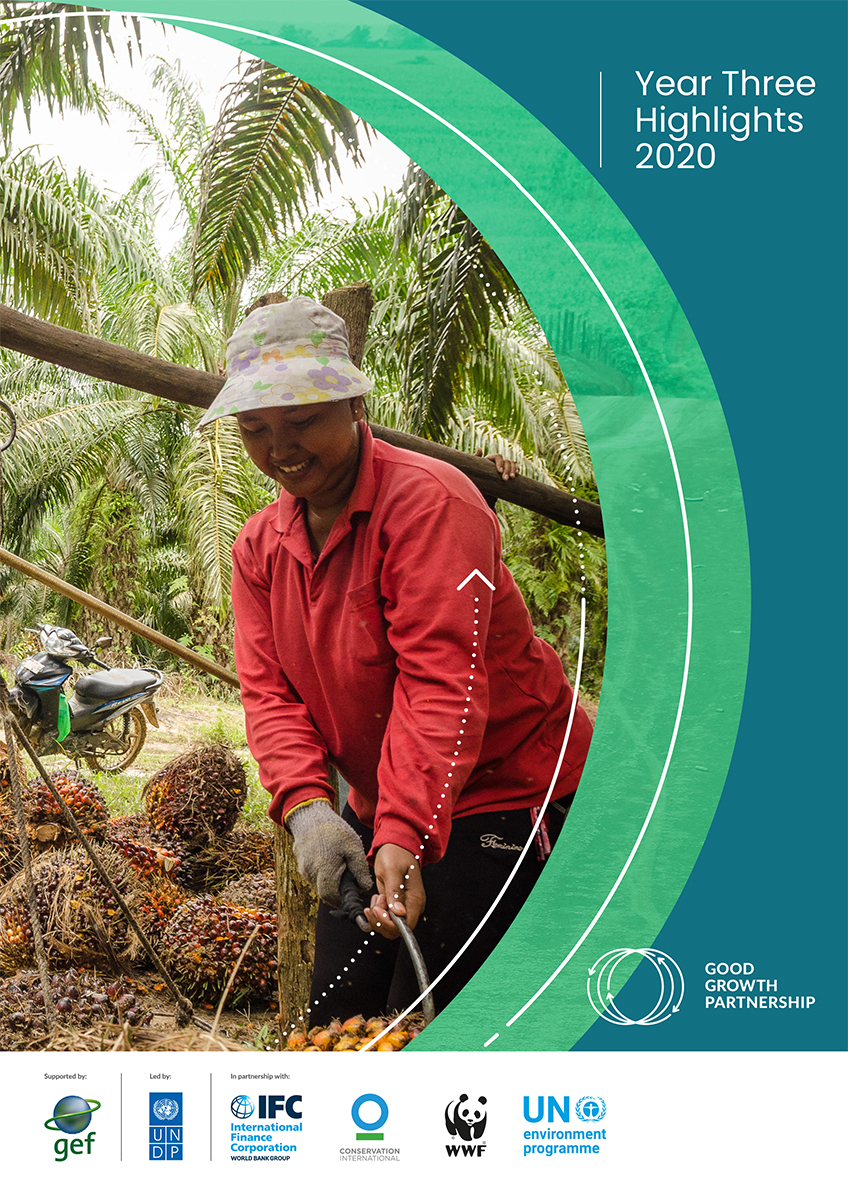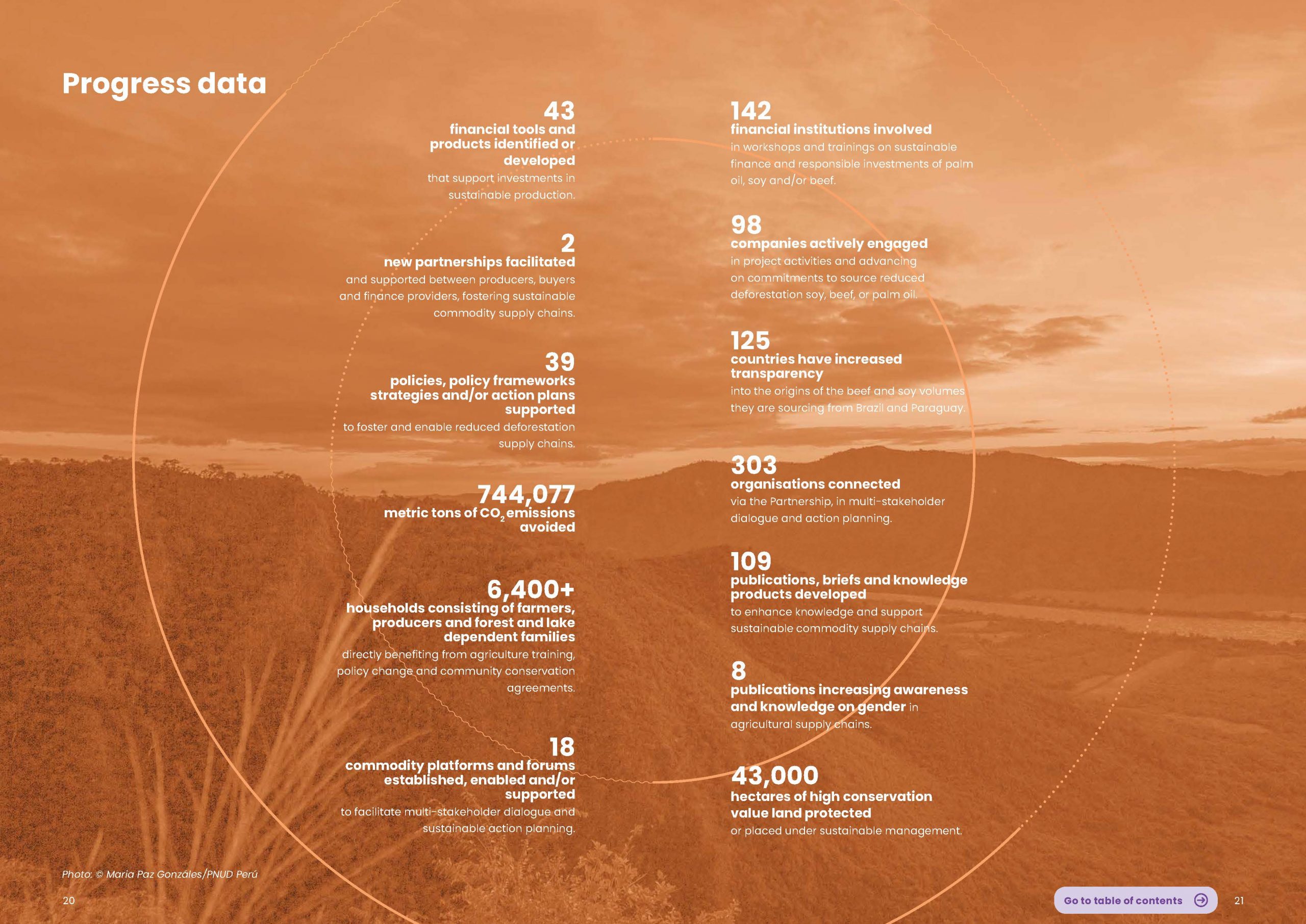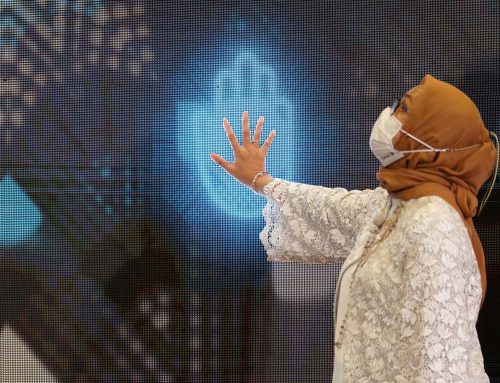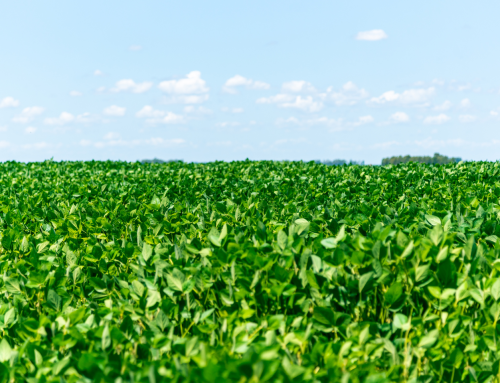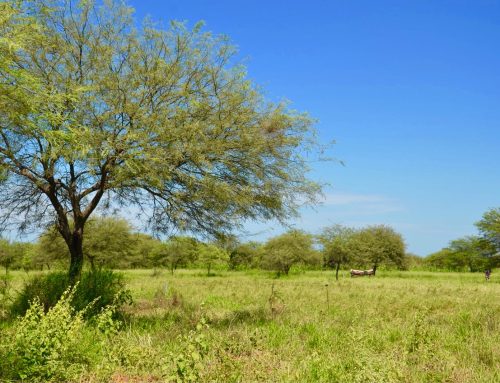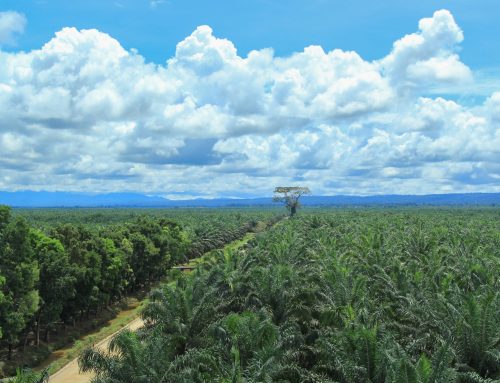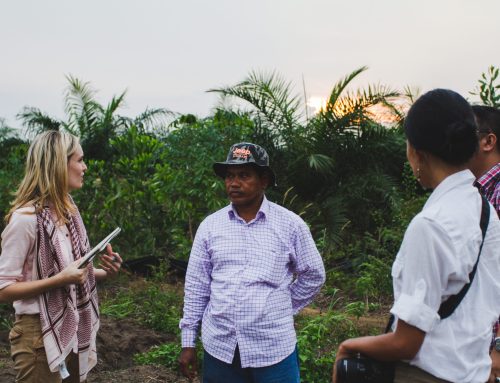By: Pascale Bonzom (UNDP), Lara Yacob (UNEP FI), Susan Pomar Nuijten (IFC), Margaret Arbuthnot (WWF US), and Amanda Sennert (Conservation International).
September 21, 2020. We are completing our third year as the Good Growth Partnership. Despite the challenges COVID-19 brings to our efforts in the four project countries and globally, we remain convinced that our approach is the way forward. Working in an integrated manner, simultaneously on the levers of sustainable supply chains, we improve the enabling environment and capacities for sustainable production, sourcing and finance, and foster increased demand and supportive financial transactions for sustainable products.
.
“When the COVID-19 recovery occurs, we will have a once-in-a-lifetime chance to scale up support for critically needed nature-based solutions to help our forests, lands, and oceans sequester carbon and protect habitats. The GEF is committed to leading this change and I personally look forward to working with the Good Growth Partnership to seize this moment and rewrite the narrative for biodiversity and the climate, the underpinnings of human life.”
Carlos Manuel Rodríguez, CEO and Chairperson of the Global Environment Facility (GEF)
.
.
The following are key highlights of our third year:
-> In total 18 commodity platforms and forums at various geographic scales (from global, to national to local) were established, enabled and/or supported. These multi-stakeholder collaboration platforms bring all those involved with a commodity supply chain together around one table to discuss solutions and agree on frameworks, standards and actions to move towards more sustainability.
-> In Indonesia, the National Action Plan for Sustainable Palm Oil (NAP SPO) developed by FoKBSI (the Indonesian Sustainable Palm Oil Platform) with support from UNDP was signed into law by the President. It mandates the 14 related ministries as well as a range of stakeholders including private sector and development partners to get involved in the implementation of the National Action Plan.
-> In Tocantins, one of the key areas of Brazil’s newest soy frontier, an agreement was signed between Conservation International and the Brazilian Agricultural Research Cooperation (EMBRAPA) to promote low-carbon agricultural practices in farms. Capacity will be strengthened for more than 40 soy producers and extension staff on 69,000+ hectares under pilot.
-> In the Paraguayan Chaco region, IFC successfully piloted the adoption of sustainable intensification techniques in partnership with a farmer cooperative. After one year of implementation and benefitting from favourable weather conditions, productivity already increased by almost 45 percent, supporting a clear business case for sustainable intensification.
-> Through the launch of its Sustainable Sourcing Guidelines and inclusion of Indonesian companies in its global Palm Oil Buyers Scorecard, along with a campaign to raise consumer awareness of sustainable palm oil in Indonesia, WWF is making progress towards increasing demand for sustainable deforestation free palm oil.
-> UNEP FI has been building capacity in Brazil, training banks and partnering with a number of banking associations on key risk management practices related to deforestation risk. This enables banks to invest in companies that are not contributing to deforestation, and hence supporting sustainable supply chains.
-> Implementation of the Zodua Conservation Agreement, in the North West landscape of Liberia, shows good results at protecting forests, reducing unsustainable practices and providing opportunities to improve livelihoods for local communities.
During year three, the Good Growth Partnership released new and strengthened existing online resources and innovative tools, providing an opportunity to learn from best practices elsewhere.
Trase is a platform which provides data transparency on agricultural commodity supply chains. It now covers nearly 50 percent of global trade in commodities linked to deforestation in the tropics.
Evidensia, launched by ISEAL Alliance and partners, is the online information hub that provides reliable research and analysis about the impact, effectiveness and business value of sustainability initiatives. As of the end of June 2020, Evidensia had 750+ reports and resources available.
The Soy Toolkit, developed by Proforest, aims to empower and build the capacity of soy traders/buyers to effectively deliver on their responsible sourcing commitments. In year three the Soy Toolkit became fully available online and was used by leading companies.
The Green Commodities Community connects commodity practitioners from around the world. Last year a new and interactive learning programme was launched with more than 20 virtual workshops .
As we celebrate these achievements, getting us closer to our targets and initiating deep changes in the commodity systems we are seeking to influence, we should also acknowledge key challenges we are facing, mostly related to the pace of change and the time bound nature of a programme.
Multi-stakeholder partnerships are essential vehicles for mobilizing and sharing knowledge, expertise, tools and financial resources to support the achievement of the SDGs in all countries, particularly developing countries. We are encouraged by the contribution we bring to this SDG and more widely to the 2030 Agenda, and look forward to further success and learning together, next year.
Pascale Bonzom, Global Project Manager Good Growth Partnership, UNDP.
Lara Yacob, GGP Sustainable Transactions Project Manager, UNEP FI.
Susan Pomar Nuijten, Associate Project Operations, MAS Agribusiness Advisory Services, GGP Sustainable Transactions Co-Project Manager, IFC.
Margaret Arbuthnot, Director, Commodity Markets, GGP Responsible Demand Project Manager, WWF US.
Amanda Sennert, Director, Multilateral Relations, Conservation International.

